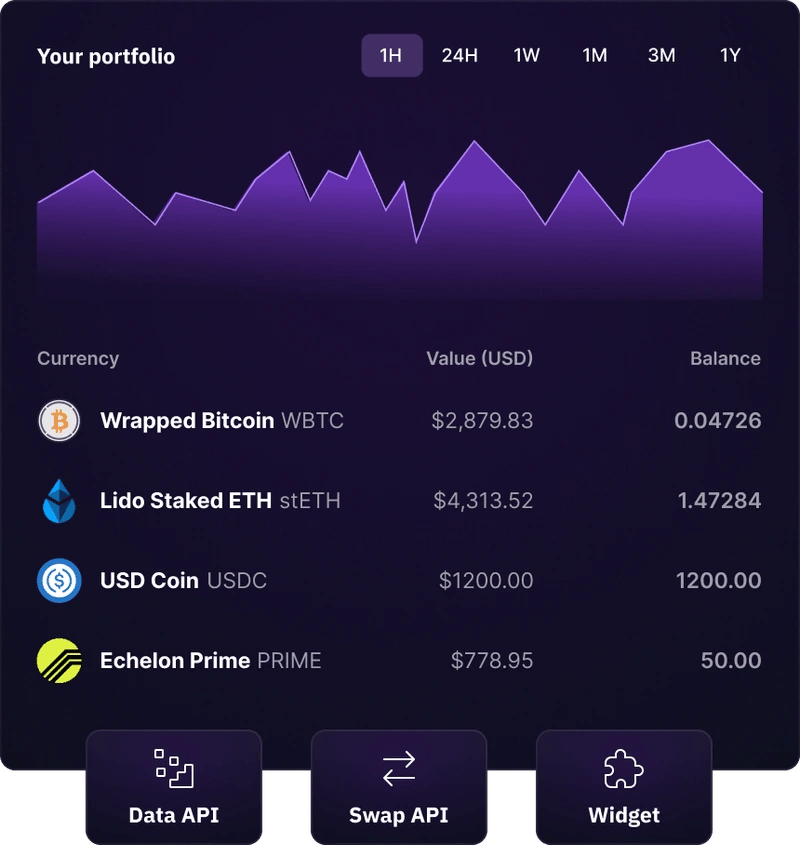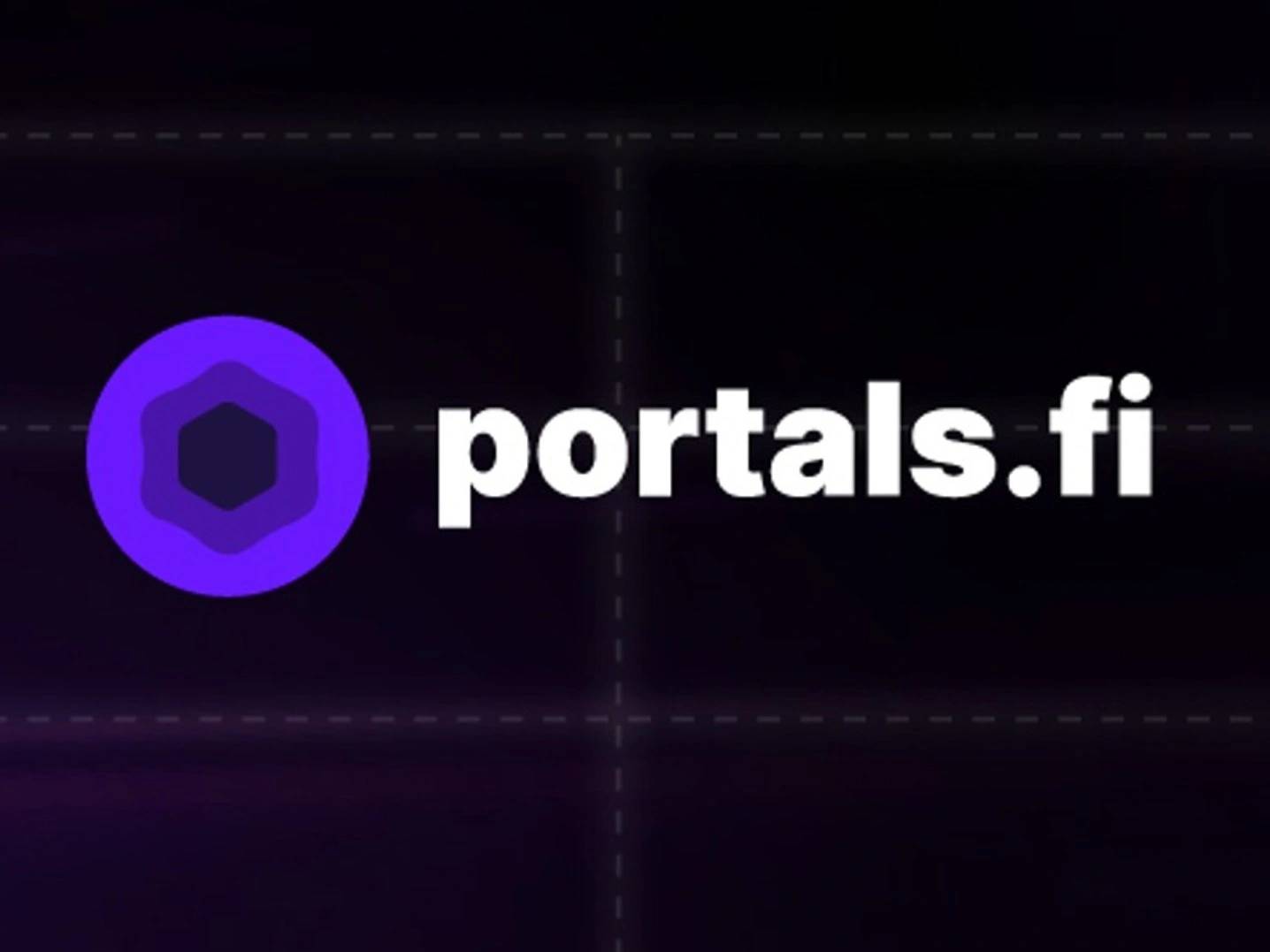Subscribe to wiki
Share wiki
Bookmark
Portals
The Agent Tokenization Platform (ATP):Build autonomous agents with the Agent Development Kit (ADK)
0%
Portals
Portals is a developer-focused DeFi Application Programming Interface (API) crafted to simplify the creation of advanced Web3 applications by offering a unified interface for interacting with multiple blockchain networks and DeFi protocols. Its multi-chain support allows developers to access and interact with data across major EVM-compatible networks, while its extensive token data functionality provides both real-time and historical insights on various token types, including basic and complex DeFi assets. [1]
Overview
Portal’s advanced DeFi operations enable seamless execution of multi-step actions, such as swaps, zaps, and liquidity provisions, all through single API calls. The API also facilitates account management, supporting multi-chain token balance management for any address, and includes historical analysis for in-depth token insights and strategy backtesting. Additionally, Portal offers transaction tracking to monitor on-chain activity and enables gasless token approvals using EIP-2612, where supported, enhancing the efficiency of DeFi application development.
To maintain security, Portal API employs API key authentication, which can be managed via a developer dashboard. The API includes endpoints for retrieving token data, analyzing historical metrics, tracking transactions, and managing multi-protocol balances. The intent-based system allows developers to bundle and execute complex DeFi actions within a single transaction, which enhances efficiency and ease of use for end users. Comprehensive guides, tools, and resources further support developers in integrating and utilizing the API’s capabilities. [1]

Products
Swap & Zap API
The Portal Swap & Zap API enables simple, one-click access to DeFi protocols through "intents" that allow users to perform swaps, yield optimization, and arbitrage in a single bundled transaction. With tools like Auto-Slippage, Price Impact Protection, and Abstracted Approvals, the API ensures efficient, secure transactions while minimizing MEV risks. It also supports any-to-any swaps, allowing users to exchange tokenized assets regardless of complexity. This includes pool-to-pool swaps (e.g., Curve 3pool to Balancer 80/20 WETH/DAI), vault-to-pool exchanges (e.g., Yearn yvDAI to Uniswap v3 USDC/WETH LP), and complex token-to-token trades (e.g., Aave aWETH to Convex cvxCRV).
Portal’s Warpdrive algorithm supports routing across major DEXs and EVM-compatible chains, enabling access to over 130 liquidity sources and 200+ protocols. Real-time transaction previews enhance transparency, and developers can customize fees, offering users a wide array of DeFi actions directly within their applications. [2]
DeFi Widget
The DeFi widget offers an embeddable, no-code solution to integrate DeFi functions such as token swapping, liquidity provisioning, and lending directly into apps. It supports full customization, enabling dApps to match the widget's appearance with their branding and engage users through an on-platform experience. With access to a wide range of tokens and protocols, developers can configure specific assets, set transaction fees, and feature high-yield opportunities, all through an intuitive dashboard. The widget simplifies DeFi integration with a single embed, keeping interactions within the app for a seamless user experience. [4]
Data API
Portal’s Data API provides quick, broad access to real-time, historical blockchain data across major EVM networks, covering thousands of tokens and DeFi assets. It delivers essential metrics like liquidity, volume, prices, and APYs, while supporting protocols such as Aave, Curve, and Yearn. Designed for simplicity, the API allows developers to retrieve multi-chain data and asset details easily, enabling use in portfolio tracking, yield strategies, and custom smart contract triggers for DeFi applications. [3]
Ecosystem
Networks
Networks in the Portals ecosystem refer to the blockchain infrastructures that host decentralized applications (dApps) and protocols. Each platform within Portals operates across one or more networks, utilizing their specific features and capabilities.
Supporting a range of networks enables Portals to offer a diverse array of decentralized finance (DeFi) opportunities, each network bringing distinct benefits in speed, cost, and scalability. By integrating multiple networks, Portals ensures users can access DeFi protocols across various blockchain environments, enhancing flexibility and usability.
- Ethereum: A leading smart contract platform with a robust DeFi ecosystem.
- Polygon: A layer-2 scaling solution for Ethereum that offers faster and more cost-effective transactions.
- Binance Smart Chain (BSC): Optimized for high throughput and low fees, supporting a wide range of DeFi applications.
- Base: A scalable and high-performance infrastructure for decentralized applications.
- Optimism: Uses optimistic rollups to reduce costs and increase throughput while maintaining Ethereum's security.
- Arbitrum: A rollup-based solution that improves transaction speed and reduces costs, compatible with Ethereum.
- Fantom: A scalable blockchain platform designed for DeFi and dApps, with fast and secure transactions.
- Gnosis: A platform focused on revolutionizing decentralized finance tools and payment infrastructure. [5]
Platforms
In the Portals ecosystem, platforms are the highest organizational layer, grouping similar tokens and managing assets from various DeFi protocols, such as Aave or Convex. Each platform contains data on its associated assets, including information like pool prices, liquidity, and relevant addresses.
Portals aims to simplify data access by providing a standardized structure across diverse DeFi protocols, allowing easy integration even for complex, composed DeFi assets. This uniformity eliminates the need for in-depth knowledge of individual protocol smart contract structures. [6]
Accounts
In the Portals API, an account represents an entity that can hold and transfer tokens, either as an Externally Owned Account (EOA) controlled by a private key or as a smart contract address. The account service enables users to access and analyze token balances across multiple networks and platforms in a streamlined manner.This service simplifies retrieving balances across various blockchain networks with a single API call, offering detailed data on token balances, prices, liquidity, and metadata. It also supports complex DeFi assets like liquidity pool tokens and yield farming positions, providing a standardized data structure for seamless integration and portfolio analysis. [7]
See something wrong?
The Agent Tokenization Platform (ATP):Build autonomous agents with the Agent Development Kit (ADK)
